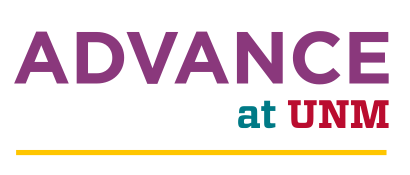National sexual assault expert has 10 tips to help colleges avoid “institutional betrayal”
A national authority on sexual violence says the UNM community can take 10 steps to best help survivors of assault and harassment on campus.
Dr. Jennifer Freyd, a psychology professor at the University of Oregon spoke at UNM Feb. 6 as the keynote speaker of the Campus Sexual Violence: Research and Response seminar sponsored by the Feminist Research Institute.
Freyd, who has spent years researching sexual violence including on college campuses, said assault survivors seeking healing or justice are often hurt a second time by the institutions they trust and rely on for support. This process, called institutional betrayal, can include covering up what happened, or not taking proactive steps to prevent this type of experience. It also might include punishing someone for reporting assault or harassment.
Survivors feel betrayal by institutions much like they feel hurt by a loved one or friend, Freyd said.
“We often relate to them (institutions) as if they are people,” she said during her presentation at the Student Union Building.

The FRI’s seminar comes as UNM last year reached an agreement with the Department of Justice to improve the way that the university handles sexual assault and harassment.
The agreement between UNM and the DOJ resulted from an investigation launched by the federal government in December 2014 into the way UNM handled sexual assault and harassment on campus, according to an Albuquerque Journal report.
At Freyd’s event, acting UNM President Chaouki Abdallah said the DOJ report was a “sobering moment” for the campus and “UNM can and must do better.”
Freyd’s suggestions include engaging in self study of sexual violence on campus, properly responding when people do report violence or harassment and committing resources to efforts against sexual violence. More information on her research is available here.
Freyd’s ten tips include:
1. Comply with laws and go beyond mere compliance.
Freyd said the spirit of the law should be at the forefront of how universities respond to reports of violence.
“It’s the spirit of the law that matters…not the letter,” Freyd said. “We should comply and go well beyond it.”
2. Respond well to disclosures
When people do report violence, it’s up to all responders, including faculty, to be supportive and to know what resources are available.
“This is the front line we have,” Freyd said. “It’s where we can immediately make a difference in people’s lives.”
3. Bear witness, be accountable and apologize
Freyd said sincere apologies go far in repairing and preventing institutional betrayal.
“Although it takes a little bit of a leap to apologize or be accountable..the payoff is very high, not only for the person seeking justice or understanding, (but also for) the person doing the apologizing,” she said.
4. Cherish the whistle blower
During her presentation, Freyd said whistle blowers can protect an institution if what they are saying is heard.
“The institution can take the information and fix it before the problem gets worse,” she said.
5. Engage in self study
This can include being willing to talk openly about sexual violence or harassment or conduct focus groups on campus.
“Just actually putting on the agenda the question ‘are we engaging in institutional betrayal?’ would probably be a big intervention,” she said. “We have to understand we can engage in institutional betrayal even if we are good people, even if our intentions are good.”
6. Conduct anonyous surveys
Freyd said not to worry about “survey fatigue” on campus and to carefully collect good data about sexual violence and harassment.
“Let researchers look at the data and see what results they find,” she said. Then, share the results so the information is as public as possible.
7. Ensure policy is trauma-informed
Those who create policy should be informed by data “so we’re not causing additional harm,” Freyd said.
“Sexual violence is a really big problem in society…and if you think about it that way, it’s very, very underresearched.”
8. Be transparent
Universities and other institutions can talk and share more information related to policies, sexual violence data or prevention and training opportunities.
“It’s important to respect the privacy of individuals while making every thing else very public,” she said.
9. Research universities can apply their mission of knowledge production and dissemination to sexual violence and harassment
“Use the power of the knowledge production and education to investigate the roots of sexual violence and how to end it,” she said. “We so need to research this”
10. Commit resources to items one through nine
“Good intentions are a good starting point, but staff, money and time need to be dedicated to make things happened,” Freyd said.
“We just have to do it. We just have to put more resources into it.”
